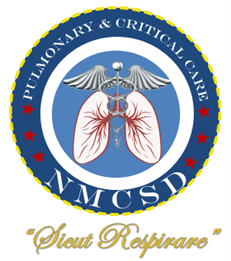INTERMOUNTAIN SHOCK/TRAUMA
- Rotation Director: James F. Orme, Jr., M.D.
- Rotation Location: Intermountain Medical Center, Murray, UT
- Rotation Duration: One 4-week block
- Trainees/month: One
Education Purpose and Rotation Description:
The shock/trauma rotation will provide the fellow valuable experience in the treatment of critically ill adult male and female patients following trauma, complicated post-operative surgical and transplant patients, and patients with severe medical illness. Critically injured or ill patients are transported to this regional trauma center from throughout the greater Salt Lake and surrounding intermountain areas. Under the direction of an attending staff physician and with the assistance of housestaff, the pulmonary/critical care fellow will manage patients admitted to the Shock/Trauma ICU. In addition to direct patient care, the fellow is responsible for directing rounds and composing didactics on critical care topics for the team’s housestaff. Fellows are expected to work 6 days a week for 12 hour shifts- generally 0700 to 1900. The fellow may be called in overnight at the in-house attending’s discretion for interesting and/or complex cases as well as assistance if a large influx of patients overwhelms house staff.
Rotation Objectives:
- Acquire knowledge and clinical experience in the following areas:
- Pathophysiology of traumatic injury and management principles of the critically injured trauma patient
- Manifestations of end-stage organ dysfunction
- Acute lung injury and ARDS
- Critical care transport including air transport
- Establishment and maintenance of airway patency in nonintubated patients.
- Principles of noninvasive and mechanical ventilation including the use of protocols to optimize ventilation, oxygenation and weaning
- Management of traumatic and spontaneous pneumothorax
- Diagnosis of various forms of shock based on data derived from noninvasive and pulmonary artery catheter measurements
- Respiratory mechanics, gas exchange, and respiratory drive
- Calibration and operation of hemodynamic recording instruments and critical care ultrasonography to guide resuscitation and management of critically ill patients
- Examination and interpretation of diagnostic specimens
- Interpretations of diagnostic imaging studies including chest radiolography, CT scanning, pulmonary angiograms, radiouclide scans, and other radiologic procedures
- Establish competence in pulmonary techniques and procedures:
- Direct and video laryngoscopic intubation
- Central venous catheter insertion including dialysis catheters
- Tube thoracostomy
- Bronchoscopy in the ICU including bronchoscopic intubation
- Ventilator management
- Paracentesis, pericardiocentesis, and thoracentesis
- Intracranial pressure monitoring
- Dialysis: peritoneal, intermittent, and continuous
- Critical care ultrasonography
- Calculation of oxygen content, oxygen, delivery, shunt, and alveolar,-arterial gradient
- Utilization, zeroing and calibration of pressure transducers
- Swan Ganz catheter insertion and interpretation
- Gain experience in:
- Postoperative management of traumatic injuries involving the chest, abdomen, pelvis, extremeties, and central nervous system
- Postoperative management of traumatic injuries involving the chest, abdomen, pelvis, extremeties, and central nervous system
- Pre and Postoperative management of transplant recipients
- Advanced physical therapy techniques for ventilated patients
- Electrolyte and acid-base disorders
- Metabolic, nutritional, and endocrine consequences of critical illness
- Hematologic and coagulation consequences of critical illness
- Pharmacokinetics and drug metabolism in critical illness
- Use of sedative and paralytic agents
- Ethical, economic, and legal aspects of critical illness
- Iatrogenic and nosocomial problems in critical care medicine
- OSHA requirements and universal precautions
- Effective surgical and subspecialty consultation
- Critical care ultrasonography interpretation
Learning Venues and Teaching Methods:
Conferences:
- Please refer to the schedule.
Direct Patient Care:
- Shock/Trauma ICU, 5th Floor, Intermountain Medical Center
Suggested Reading:
- Textbook of Critical Care. Edited by Shoemaker, Ayres, Grenvik, and Holbrook, W.B. Saunders, and Company.
- Critical Care. Edited by Civita Taylor, and Kirby, Lippincott, and Raven
- Intensive Care Medicine. Edited by Rippe, Taylor, Alpert, and Fink. Little Brown.
- Hemodynamic Monitoring Using Echocardiography in the Critically Ill. Edited by De Backer, Slama, Vignon, Cholley, Viellard-Baron. Springer.
- Pulmonary Artery Catheter Education Project.http://www.pacep.org/Evaluation:
Evaluation:
Trainees will receive a written evaluation upon completion of their rotation. This evaluation will assess their cognitive, patient management, procedural, and humanistic skills. The evaluation, including suggested areas for improvement, will be discussed personally with the trainee at the end of the rotation and then shared with the Fellowship Director to be included in the trainee’s permanent file.
